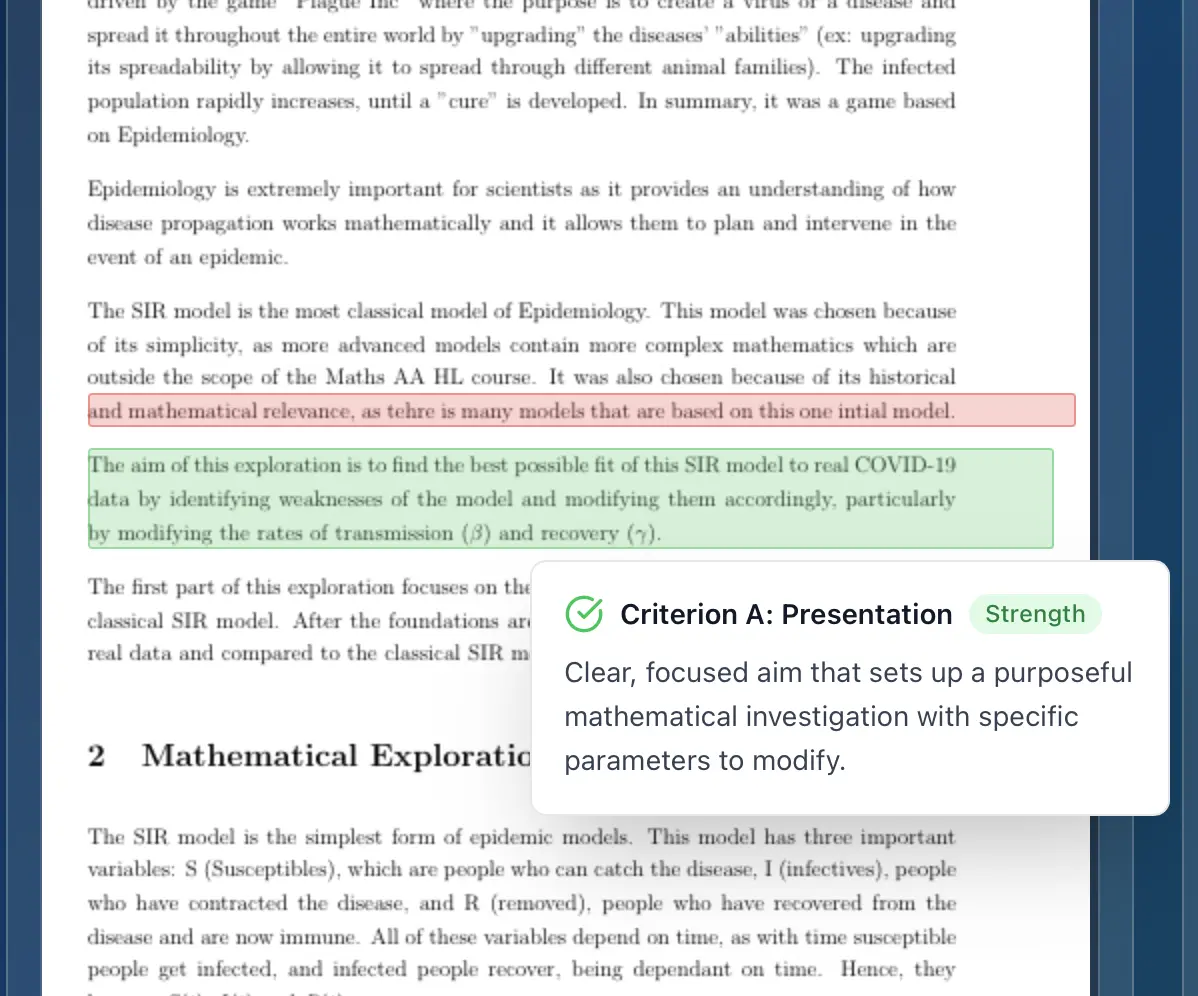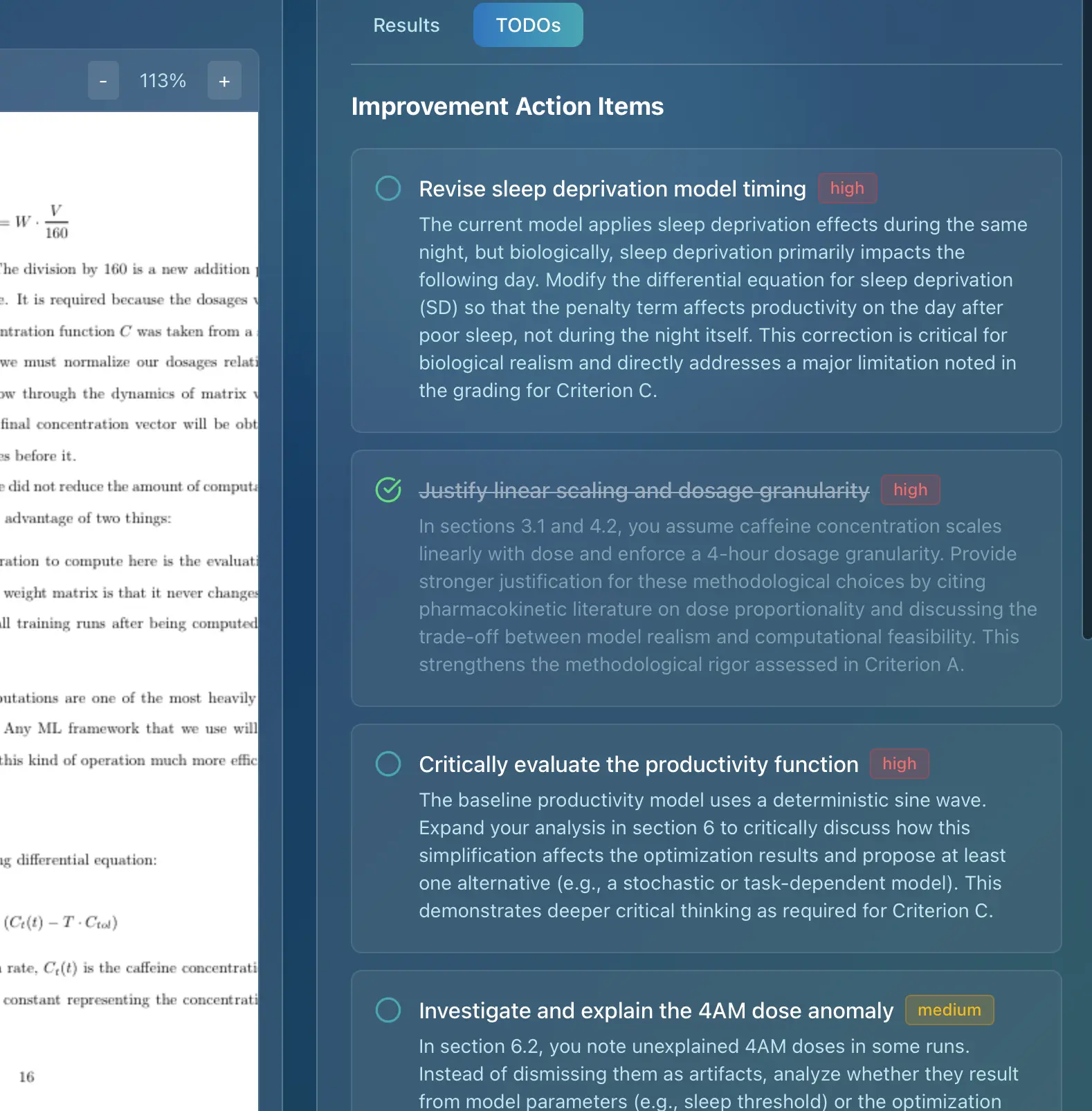How to Write an IB Extended Essay: The Complete Guide
The IB Extended Essay (EE) is a cornerstone of the International Baccalaureate (IB) Diploma Programme, representing a significant independent research project. This guide provides a comprehensive walkthrough of the entire EE process, from initial topic selection to final submission. Whether you're just starting or looking to refine your approach, we'll cover everything you need to know to write a successful Extended Essay and achieve a high score. This includes understanding the assessment criteria, structuring your essay effectively, avoiding common pitfalls, and leveraging technology to enhance your research and writing. Let's dive in and unlock the secrets to EE success!
Introduction (Answer the Query Immediately)
The IB Extended Essay (EE) is a 4,000-word independent research paper that forms a crucial component of the International Baccalaureate (IB) Diploma Programme. Many students find it daunting, but with the right guidance, it can be a rewarding experience. This complete guide will walk you through every stage of the EE process, from choosing a suitable topic and formulating a research question to conducting thorough research, structuring your essay effectively, and adhering to the IB's assessment criteria. We'll also explore common mistakes to avoid and offer advanced strategies to help you excel. Whether you're an IB student, teacher, or parent, this guide provides the information you need to navigate the Extended Essay successfully.
Struggling with IB Assessments?
Get instant, detailed feedback on your work with AI that understands IB criteria.

Core Content Sections
1. Understanding the IB Extended Essay
The Extended Essay is more than just a long paper; it's an opportunity to delve deeply into a topic that genuinely interests you. It allows you to develop research, analytical, and writing skills that are invaluable for university and beyond. The EE contributes to your overall IB Diploma score, so it's essential to approach it strategically.
Key Objectives of the Extended Essay:
- Independent Research: Develop your ability to conduct independent research and analysis.
- Critical Thinking: Enhance your critical thinking and problem-solving skills.
- Academic Writing: Improve your academic writing and communication skills.
- Time Management: Learn to manage your time effectively and meet deadlines.
2. Choosing the Right Topic
Selecting the right topic is arguably the most crucial step. A good topic should be:
- Interesting: Choose something you're genuinely passionate about. This will make the research process more enjoyable and engaging.
- Manageable: Ensure the topic is narrow enough to be explored in depth within the 4,000-word limit.
- Researchable: Verify that there are sufficient resources available to support your research.
- Aligned with IB Subject Guidelines: Make sure your topic falls within the guidelines of the chosen IB subject.
Example:
Instead of a broad topic like "The Impact of Climate Change," consider narrowing it down to "The Impact of Rising Sea Levels on Coastal Communities in Bangladesh."
3. Formulating a Strong Research Question
A well-defined research question is the backbone of your Extended Essay. It should be:
- Focused: Specific and clearly defined.
- Arguable: Allow for analysis and interpretation, not just description.
- Researchable: Answerable through research and evidence.
Example:
Instead of a general question like "What are the effects of social media?", try "How does the use of Instagram influence the self-esteem of teenagers aged 13-16 in urban environments?"
4. Planning and Structuring Your Essay
A well-structured essay is easier to read and understand. Here's a suggested structure:
- Title Page: Include your name, candidate number, subject, and research question.
- Abstract: A brief summary (around 300 words) of your research question, methodology, findings, and conclusion.
- Introduction: Introduce your topic, explain its significance, and state your research question.
- Body Paragraphs: Present your research, analysis, and arguments in a logical and coherent manner. Use evidence to support your claims.
- Conclusion: Summarize your findings, restate your thesis, and discuss the implications of your research.
- Works Cited/Bibliography: List all the sources you used in your research.
- Appendices (if necessary): Include any supplementary materials, such as raw data or interview transcripts.
5. Conducting Effective Research
Effective research is essential for a successful Extended Essay. Here are some tips:
- Use a variety of sources: Include books, academic journals, reputable websites, and primary sources (e.g., interviews, surveys).
- Evaluate your sources: Assess the credibility and reliability of your sources.
- Take detailed notes: Keep track of your sources and the information you gather.
- Organize your research: Use a system to organize your notes and sources (e.g., a spreadsheet, a citation management tool).
6. Writing and Revising Your Essay
Writing the Extended Essay is an iterative process. Here are some tips:
- Start early: Don't wait until the last minute to start writing.
- Write a first draft: Focus on getting your ideas down on paper. Don't worry about perfection at this stage.
- Revise and edit: Review your essay for clarity, coherence, and accuracy. Pay attention to grammar, spelling, and punctuation.
- Get feedback: Ask your supervisor, teachers, or peers to read your essay and provide feedback.
7. Adhering to IB Assessment Criteria
The IB uses specific criteria to assess the Extended Essay. Understanding these criteria is crucial for achieving a high score. The criteria include:
- Focus and Method: Clarity of the research question and appropriateness of the methodology.
- Knowledge and Understanding: Demonstration of knowledge and understanding of the topic.
- Critical Thinking: Analysis, evaluation, and synthesis of information.
- Presentation: Organization, clarity, and coherence of the essay.
- Engagement: Reflection on the research process and personal engagement with the topic.
Common Challenges/Mistakes Section
Many students encounter common challenges when writing their Extended Essay. Here are some of the most frequent mistakes and how to avoid them:
- Choosing a Topic That Is Too Broad: This makes it difficult to conduct in-depth research and analysis. Solution: Narrow your topic to a specific area of focus.
- Failing to Formulate a Clear Research Question: This leads to a lack of direction and focus in the essay. Solution: Spend time crafting a well-defined and arguable research question.
- Insufficient Research: This results in a lack of evidence to support your arguments. Solution: Conduct thorough research using a variety of sources.
- Poor Organization: This makes it difficult for the reader to follow your arguments. Solution: Plan your essay carefully and use a clear and logical structure.
- Plagiarism: This is a serious academic offense that can result in a failing grade. Solution: Properly cite all your sources and avoid copying and pasting text from other sources.
- Ignoring the IB Assessment Criteria: This can lead to a lower score. Solution: Familiarize yourself with the IB assessment criteria and ensure that your essay meets all the requirements.
- Procrastination: Waiting until the last minute to start working on the EE. Solution: Break the EE down into smaller, manageable tasks and set realistic deadlines for each task.
Pro Tip: Get AI-Powered Grading
Stop second-guessing your grades. Get instant feedback aligned with official IB rubrics.

Advanced Tips/Strategies Section
To truly excel in your Extended Essay, consider these advanced strategies:
- Engage with Primary Sources: Whenever possible, incorporate primary sources into your research, such as interviews, surveys, or original documents. This demonstrates a deeper level of engagement with the topic.
- Develop a Strong Argument: Don't just present information; develop a clear and compelling argument that answers your research question.
- Show Critical Thinking: Go beyond simply summarizing information; analyze, evaluate, and synthesize your findings.
- Reflect on the Research Process: In your conclusion, reflect on the challenges you faced during the research process and what you learned from the experience.
- Seek Expert Guidance: Consult with experts in your field to gain insights and perspectives on your topic.
- Use Visual Aids: Incorporate visual aids, such as graphs, charts, and images, to enhance your presentation and support your arguments.
- Consider Counterarguments: Acknowledge and address counterarguments to strengthen your own position.
Technology and Modern Assessment Section
Technology is transforming the way we approach research and assessment in the IB. AI-powered tools can help you find relevant sources, analyze data, and improve your writing. However, it's crucial to use these tools responsibly and ethically.
One of the most significant advancements is the use of AI in grading and feedback. Platforms like Marksy are revolutionizing the way teachers assess IB assignments, including the Extended Essay. Marksy uses AI to provide instant, accurate, and detailed feedback on student work based on official IB rubrics. This helps teachers save time and ensures consistent and fair grading.
How Marksy Helps:
- Rubric-Aligned Scoring: Marksy scores essays based on the official IB assessment criteria, ensuring accuracy and consistency.
- Detailed Criterion-by-Criterion Feedback: Students receive specific feedback on each criterion, helping them understand their strengths and weaknesses.
- Suggestions for Improvement: Marksy provides actionable suggestions for improvement, guiding students on how to enhance their work.
- Time-Saving for Teachers: Marksy automates the grading process, freeing up teachers' time to focus on providing personalized support to students.
By leveraging AI tools like Marksy, teachers can provide more effective and efficient feedback, ultimately helping students achieve their full potential in the Extended Essay. Furthermore, students can use other AI tools (ethically and with proper citation) to help with research and brainstorming.
Conclusion with Clear Next Steps
The IB Extended Essay is a challenging but rewarding experience. By following the advice in this guide, you can increase your chances of success. Remember to choose a topic that interests you, formulate a strong research question, conduct thorough research, and adhere to the IB assessment criteria.
Key Takeaways:
- The Extended Essay is a significant component of the IB Diploma Programme.
- Choosing the right topic and formulating a strong research question are crucial.
- Effective research and writing skills are essential for success.
- Understanding the IB assessment criteria is vital.
- Technology can be a valuable tool for research and assessment.
Next Steps:
- Brainstorm potential topics: Start by exploring your interests and identifying areas that you would like to research further.
- Formulate a research question: Once you have a topic in mind, develop a clear and focused research question.
- Create a research plan: Outline the steps you will take to conduct your research and write your essay.
- Start writing: Don't wait until the last minute to start writing. Break the essay down into smaller, manageable tasks and set realistic deadlines.
- Get feedback: Ask your supervisor, teachers, or peers to read your essay and provide feedback.
- Revise and edit: Review your essay carefully and make any necessary revisions.
Ready to take your IB Extended Essay to the next level? Try Marksy for free today and experience the power of AI-driven feedback! See how it can help you improve your score or streamline your grading workflow. [Link to Marksy Website]